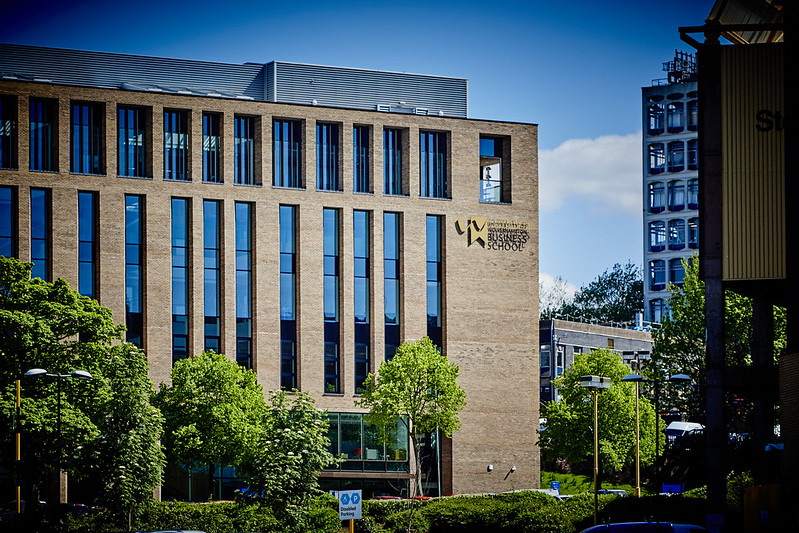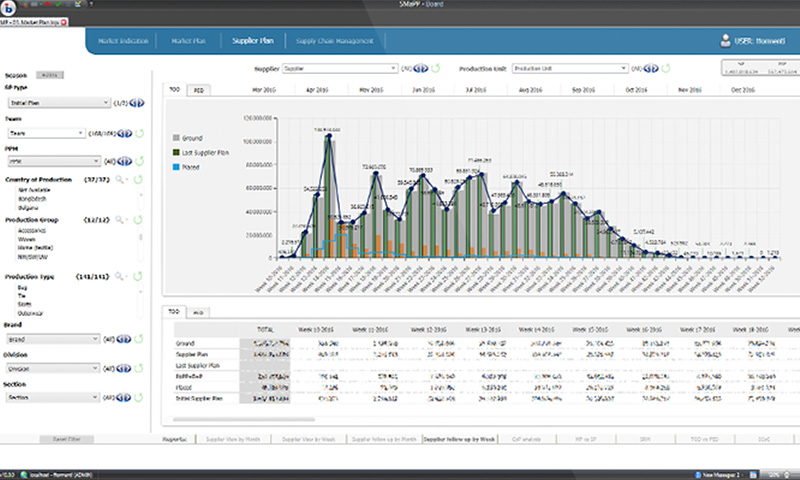Year 1 (Level 4) modules
The Responsible Business
An introduction to responsible business practices with an emphasis on professional, moral, and personal responsibility. This module will encourage the development of personal and professional development skills and self-reflection as a personal development tool.
The Innovative Business
Exploring what it takes for a business to be innovative; you will be introduced to various theoretical views and opinions in the areas of creativity, innovation, and enterprise. You will be challenged to consider where, how and why ideas are generated; how ideas are implemented; and who and what type of people/teams develop innovative ideas.
The Sustainable Business
As awareness of climate change, resource scarcity, environmental impact and social inequality rises, businesses are increasingly being held accountable by consumers, governments, and other stakeholders. The module provides a holistic view of sustainability through a global lens where you will learn how the aforementioned factors impact the way we live and how businesses operate.
Learning how businesses adopt sustainable strategies across their various business functions such as marketing, supply chain and HR, you will also explore the macro and micro influences that impact these strategies. Overall, the module will help create awareness of corporate as well as individual social responsibility through use of international case studies.
The Digital Business
The first part of this module aims to provide a practical understanding of the digital business, the need for digital transformation to support innovation and to continue to have a competitive advantage in the marketplace. The various digital business models are explored along with the importance of digital capability.
The second part of the module introduces you to the information systems that support today's digital business. A range of information systems are examined including those that support the operations of the digital business, through to its sales and marketing functions. The importance of big data and business intelligence are introduced before examining how today’s digital business can apply business intelligence to develop new products and services along with improvements in efficiency and its business processes.
Year 2 (Level 5) modules
Customer Acquisition and Retention
Exploring the customer journey from prospect or enquiry to loyal customer or advocate, you will learn about the marketing strategies and tactics involved in attracting new customers and retaining them. Research suggests it can cost between 5 and 10 times as much to acquire a new customer as it does to retain an existing one, with the commonly quoted average being 7 times more expensive to acquire a new customer.
So why do so many companies spend more time chasing new customers than keeping existing ones? This is the paradox of customer retention and acquisition. This module will enable you to understand the role of customer acquisition and retention in designing contemporary marketing strategies for organisations. You will gain practical experience of planning marketing campaigns designed to attract, win, and retain customers.
The Professional Manager and Leadership
The aim of this module is to develop your understanding of management and leadership principles, and to explore the influence various leadership and management approaches have on key human resource management functions, including change management. Through the study of emerging leadership concepts, such as super leadership, you will develop an appreciation for the development of self as a method to support others in their development. Reflective practice underpins the module to support you in assessing your own approach to learning and development.
Operations and Project Planning
Exploring operations and supply chain management, as well as the fundamentals of project management, this module aims to give you the skills required to analyse contemporary issues facing business operations and supply chain. It also exposes you to the understanding of how businesses mitigate these issues to deliver goods and services of the quality and of the right quantity to satisfy customers’ need while adopting lean business approaches.
Equipping you with team working and communication skills in a project environment, you will be able to define, plan and control projects through their life cycle, while balancing competing performance objectives and managing competing stakeholder requirements. Detailed study of management tools such as critical path analysis and PERT will be undertaken.
Managing Finance and Accounts
The aim of this module is to provide an introduction of a range of financial and accounting skills to business students, to help their understanding and managerial decision-making skills. You will evaluate the organisation’ financial statements, identify the principles for setting and managing budgets and understand finance within the organisation. This module has been designed to enhance your confidence and credibility in financial management, which will translate into improved management skills.
Year 3 (Level 6) modules
The Strategic Business
The strategic business module will equip you to make strategic decisions at both a corporate and functional level. You will develop the skills required to evaluate the success of implemented strategy which will inform decision making at a corporate and functional level.
Organisational Behaviour
Exploring current knowledge around behaviour in contemporary organisations, this module explores areas from an individual employee and manager perspective. You will engage with topics such as identity, power, gender, motivation, change, and ethics, from a critical, and in some instances, post-structuralist perspective. The aim of the module is to equip you with a fundamental grounding in organisational behaviour to help you develop into a manager of the future.
The Professional Project
On this independent study unit, you will draw learning from previous subjects, focusing on your key strengths, in the production of a business artefact. Alongside the artefact, you will develop a written critical reflection, which is designed to explain your choice of artefact and reflect on the process of its production and dissemination.
The Business Communicator
The ability to effectively communicate with all internal and external stakeholders is key for business leaders. The business environment is in constant flux, and it is important to be able to navigate this space, whilst building relationships and networks. This module will explore key communication and human resources theories and provide students with the tools to assess and develop their own communication skills.
The course offers you the option of specialising in your final year by opting for a bracketed award in human resources, enterprise, or marketing...
Enterprise
The course is designed for students who want to embark on an in-depth study of Business Management with the opportunity to specialise in the final year in Enterprise. The course provides students with the opportunity to study enterprise across wide and diverse disciplines; to learn enterprising skills and techniques; to enhance their employability potential and to aim for future success. Many people have entrepreneurial talent that is often hidden and remains unchallenged. This course enables you to identify, release and apply your enterprise talent in practical and beneficial ways that will inspire you towards achieving your personal ambitions and future career success. The course recognises that entrepreneurship is a key force for successful economic growth and thus the course emphasises the development of knowledge and understanding of a range of management and business practices and the ability to apply them effectively in an entrepreneurial and innovative manner.
The specialised Enterprise route is not a standalone course. This route is the final year of your overall BA (Hons) Business Management or BA (Hons) Business Management with Sandwich placement courses.
HR
The course is designed for students who want to embark on an in-depth study of Business Management with the opportunity to specialise in the final year in Human Resource Management.
The course provides an opportunity for students to examine the importance of the human resources profession in developing the structure and strategy of organisations with an aim to prepare students for a professional career in Human Resource management. The course recognises that people management is a key force for successful economic growth and thus emphasises the development of knowledge and understanding of advanced human resource management concepts and business practices and the ability to apply them effectively in an innovative manner.
The specialised Human Resources route is not a standalone course. This route is the final year of your overall BA (Hons) Business Management or BA (Hons) Business Management with Sandwich placement courses.
Marketing
The course is designed for students who want to embark on an in-depth study of Business Management with the opportunity to specialise in the final year in Marketing.
While students develop analysis and evaluation skills as part of their overall BA Business Management course, this course is an opportunity to learn advanced marketing concepts and build a strong foundation for a career in Marketing. The course emphasises on the development of knowledge and understanding for a range of advanced marketing concepts and business practices and the ability to apply them effectively in an innovative manner.
The specialised Marketing route is not a standalone course. This route is the final year of your overall BA (Hons) Business Management or BA (Hons) Business Management with Sandwich placement courses.


/prod01/wlvacuk/media/departments/digital-content-and-communications/images-18-19/iStock-163641275.jpg)
/prod01/wlvacuk/media/departments/digital-content-and-communications/images-2024/250630-SciFest-1-group-photo-resized-800x450.png)
/prod01/wlvacuk/media/departments/digital-content-and-communications/images-18-19/210818-Iza-and-Mattia-Resized.jpg)
/prod01/wlvacuk/media/departments/digital-content-and-communications/images/Maria-Serria-(teaser-image).jpg)
/prod01/wlvacuk/media/departments/digital-content-and-communications/images-2024/241014-Cyber4ME-Project-Resized.jpg)
/prod01/wlvacuk/media/departments/digital-content-and-communications/images-18-19/210705-bric_LAND_ATTIC_v2_resized.jpg)





